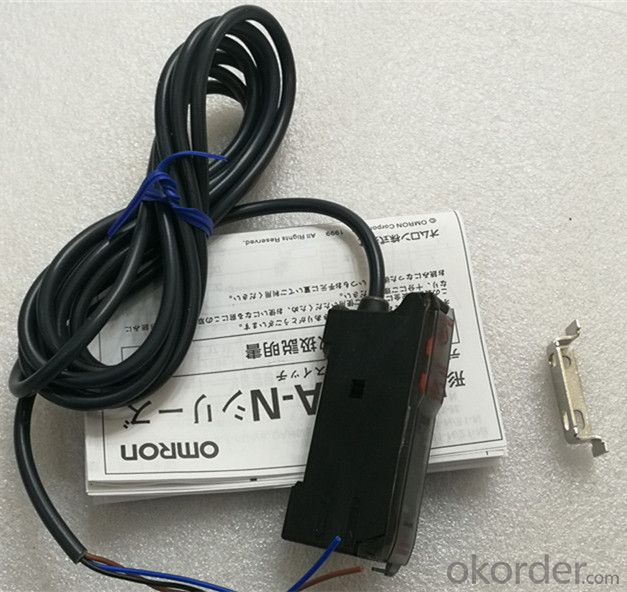Loading Port:Shanghai
Payment Terms:TT OR LC
Min Order Qty:1 kg
Supply Capability:2300 kg/month
Proximity switches are widely used in aviation, aerospace technology and
industrial production. It is used in daily life, such as automatic doors in
hotels, restaurants and garages and automatic hot air fans. In terms of
security and anti-theft, important places such as data archives, finance and
accounting, finance, museums and treasuries are usually equipped with anti-
theft devices composed of various proximity switches. In measurement
technology, such as length and position measurement; In the control technology,
such as the measurement and control of displacement, velocity and acceleration,
a large number of proximity switches are also used.
Ime08-1b5pszt0s Order No.: 1040838 inductive proximity sensor
Trigger sensing distance SN: 1.5 mm
Mounting on metal: flush
Shell shape: Standard
Electrical specification: DC 3-wire
Switching value output: PNP
Switch function: normally open contact
Connection type: plug, M8, 3-pin
E3X-DA11-N
Type: e3x-da11-n Order No.: 1040854 inductive proximity sensor
Trigger sensing distance SN: 2.5 mm
Mounting on metal: non flush
Shell shape: Standard
Electrical specification: DC 3-wire
Switching value output: PNP
Switch function: normally open contact
Connection type: plug, M8, 3-pin
E3X-DA11-N
Type: e3x-da11-n Order No.: 1040837 inductive proximity sensor
Trigger sensing distance SN: 1.5 mm
Wiring diagram of proximity switch
1) Proximity switch has the difference between two-wire system and three wire
system. Three wire proximity switch is divided into NPN type and PNP type, and
their wiring is different. See the figure below:
2) The wiring of the two-wire proximity switch is relatively simple. The
proximity switch can be connected to the power supply after being connected in
series with the load.
3) Wiring of three wire proximity switch: the red (brown) wire is connected to
the positive end of the power supply; The blue line is connected to the 0V end
of the power supply; The yellow (black) line is a signal and should be
connected to the load. The other end of the load is connected in this way: for
NPN proximity switch, it should be connected to the positive end of the power
supply; For PNP type proximity switch, it shall be connected to the 0V end of
the power supply.
4) The load of proximity switch can be signal lamp, relay coil or digital input
module of PLC.
5) Special attention should be paid to the type selection of three wire
proximity switch connected to PLC digital input module. PLC digital input
modules can generally be divided into two types: one type of common input
terminal is the power supply 0V, and the current flows out of the input module
(Japanese mode). At this time, NPN proximity switch must be selected; The other
type of common input is the positive end of the power supply, and the current
flows into the input module, i.e. well input (European mode). At this time, PNP
type proximity switch must be selected. Don't make a mistake.
6) The two-wire proximity switch is limited by the working conditions. When it
is turned on, the switch itself produces a certain voltage drop, and when it is
cut off, there is a certain residual current flowing. It should be considered
when selecting. Although the three wire proximity switch has one more wire, it
is not troubled by adverse factors such as residual current and works more
reliably.
7) Some manufacturers lead out the "normally open" and "normally closed"
signals of the proximity switch at the same time, or add other functions. In
this case, please make specific wiring according to the product manual.
Slot type photoelectric switch wiring
The diode of the photoelectric switch is a light-emitting diode, the output is
a photosensitive triode, C is the collector, and E is the emitter.
When a triode is used as a switch, the collector is usually used as the output.
General connection method: the diode is the input end, e is grounded, C is
connected to the load, and the other end of the load needs to be connected to
the positive power supply. This connection method has a wide range of
application.
Special connection method: the diode is the input end, C is connected to the
positive power supply, e is connected to the load, and the other end of the
load needs to be grounded. This connection method is only applicable when the
load equivalent resistance is very small (within tens of ohms). If the load
equivalent resistance is relatively large, the working point of the switching
triode may be abnormal, resulting in unreliable switching operation.
In general industrial production sites, eddy current proximity switches and
capacitive proximity switches are usually selected. Because these two proximity
switches have low requirements for the environment.
When the measured object is a conductive object or an object that can be fixed
on a metal object, eddy current proximity switch is generally selected because
of its high response frequency, good anti-environmental interference
performance, wide application range and low price.
If the measured object is non-metal (or metal), liquid level height, powder
height, plastic, tobacco, etc. Capacitive proximity switch shall be selected.
This kind of switch has low response frequency but good stability. The
influence of environmental factors shall be considered during installation.
If the measured object is made of magnetic conducting material or the magnetic
steel is buried in the measured object in order to distinguish the object
moving with it, hall proximity switch shall be selected, and its price is the
lowest.
Photoelectric proximity switches can be used in occasions with good
environmental conditions and no dust pollution. When the photoelectric
proximity switch works, it has almost no effect on the measured object.
Therefore, it is widely used in fax machines with high requirements and tobacco
machinery.
In the anti-theft system, the automatic door usually uses pyroelectric
proximity switch, ultrasonic proximity switch and microwave proximity switch.
Sometimes, in order to improve the reliability of identification, the above
proximity switches are often used in combination.